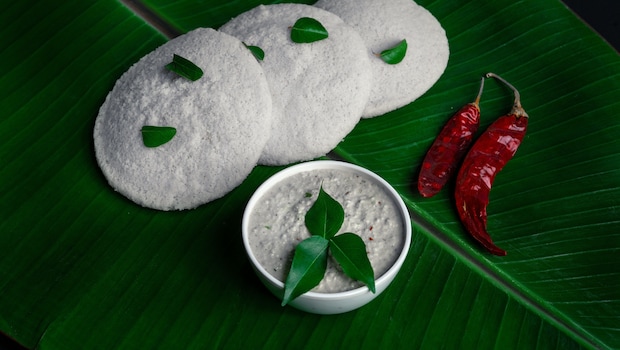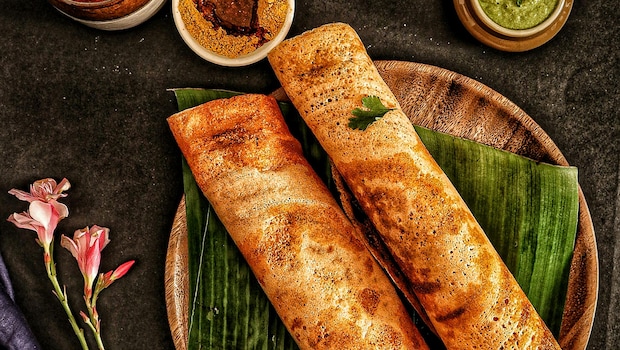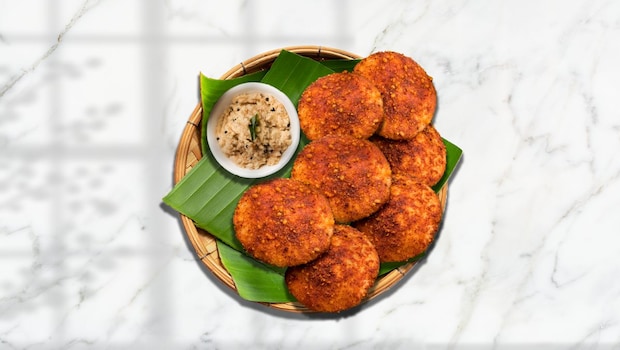South Indian breakfasts have a special place in Indian hearts. Among the many options, two dishes often take centre stage - idli and dosa. Both are made from a similar batter of fermented rice and urad dal, yet they couldn't be more different in texture and taste. Idli is soft, fluffy and steamed to perfection, while dosa is thin, crispy and cooked golden on a hot griddle. These dishes are not just about flavour; they carry comfort in every bite. The best part? You can easily make both at home and even order them via an online food delivery app.
But when it comes to health, people often wonder, which one is better for the body? While they share a common origin, their cooking methods and portion sizes create distinct nutritional profiles. Understanding these differences can help you pick what suits your health goals without giving up on the joy of South Indian cuisine.
Also Read: Obsessed With Dosa? Here's A High-Protein Rajma-Paneer Version You'll Love

Photo Credit: Unsplash
What Are The Health Benefits Of Idli?
- Low In Fat: Idlis are steamed, requiring no oil for cooking, making them naturally low in fat and easy on the stomach. This cooking method ensures that idlis retain their nutritional value without adding extra calories.
- Gut Health Benefits: The fermentation process involved in making idli batter improves gut health and enhances the absorption of nutrients. This makes idlis a nutritious and healthy option for people of all ages.
- Easy To Digest: Idlis are light and easily digestible, making them an ideal food for breakfast, post-workout meals or recovery diets. They provide the necessary energy and nutrients without putting a strain on the digestive system.
What Are The Health Benefits Of Dosa?
- Supports Satiety: Dosas can be a filling and satisfying meal option, especially when paired with protein-rich or fibre-rich fillings. This can help reduce hunger and support weight loss efforts.
- Versatility And Nutrient Addition: Dosas are highly versatile and offer scope to add a variety of vegetables and proteins, making the meal richer in nutrients. This flexibility allows for creative and healthy fillings that can enhance the nutritional value of the dosa.
- Sustained Energy: Dosas provide sustained energy thanks to their higher carb content. This makes them a good option for meals that require a steady release of energy, such as breakfast or a pre-workout meal.
So, Which One Is The Healthier Choice? Idli Or Dosa?
When it comes to choosing between idli and dosa, the healthier option depends on your priorities. If you're looking for a light and low-fat meal that's gentle on your stomach, idli is the way to go. On the other hand, if you prefer something more filling and versatile, dosa is a great choice. Both idli and dosa can be nutritious options when paired with protein-rich sambar and chutneys. Ultimately, the key to making both dishes healthy is to balance the ingredients and portion sizes.

Photo Credit: iStock
Commonly Asked Questions About Idli And Dosa:
Which Is Healthier, Idli Or Dosa, For Diabetics?
Idli is a better option for diabetics due to its lower glycaemic index and higher fibre content. The fermentation process in idli also helps slow down the digestion of carbohydrates, reducing the spike in blood sugar levels.
Can Idli And Dosa Be Part Of A Weight Loss Diet?
Yes, both idli and dosa can be part of a weight-loss diet when consumed in moderation and paired with nutritious fillings. Idli naturally has a lower calorie count, while dosa can be made healthier by using minimal oil and adding protein-rich fillings.
Also Read: How To Make Crispy Dosa Without A Cast Iron Pan

Photo Credit: Canva
Are Idli And Dosa Suitable For A Gluten-Free Diet?
Absolutely! Idli and dosa are naturally gluten-free. Made from fermented rice and lentil batter, these South Indian staples are perfect for individuals with gluten intolerance or celiac disease. You can indulge in these delicious breakfast options without worrying about gluten-related discomfort.
Whether you're cooking idli and dosa at home or ordering them via an online food delivery platform, remember to savour them in moderation to unlock their full health benefits.
Disclosure: This article may contain links to third-party websites or resources. However, this does not affect the integrity of the content, and all recommendations and views are based on our independent research and judgment.







